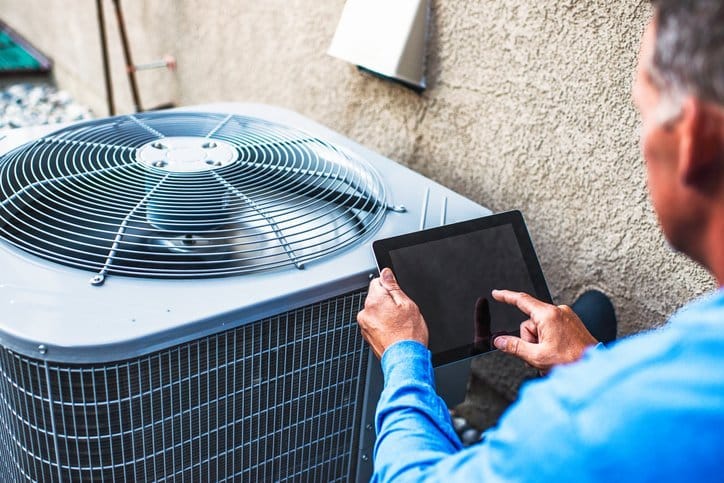In today's world, the role of HVAC systems extends far beyond mere climate control; it significantly impacts our health and well-being. As we seek comfort in our homes and workplaces, understanding the connection between heating, ventilation, and air conditioning and our overall health becomes increasingly important. From regulating temperature to ensuring proper air quality, HVAC systems play a crucial part in creating a safe and conducive environment.
The guide will delve into the essentials of HVAC systems, shedding light on how they work and their relation to our health. We will explore common challenges homeowners face with their HVAC systems and share tips on maintaining efficiency, thus helping to create a healthier indoor atmosphere. Whether you are interested in energy-efficient practices or enhancing air quality, this article caters to your needs, providing insights that not only enhance comfort but also promote well-being.
Grasping Heating, Ventilation, and Air Conditioning Systems
Heating, Ventilation, and Air Conditioning is an acronym for Heating, Ventilation, and Air Conditioning. These includes the systems and devices used to regulate the temperature, humidity, and air quality in residential and commercial spaces. They are engineered to provide comfort by effectively controlling indoor environments year-round. This includes as well as ventilation, understanding the components and functionality of HVAC systems is crucial for both comfort and health.
The heating and warmth component can include furnaces, boilers, and heating devices that heat air or water for circulation throughout a building. Cooling systems often include air conditioners and refrigeration systems that regulate desired indoor temperatures during warm months. Ventilation plays a crucial role in ensuring air quality by bringing in outside air while expelling used air, crucially reducing indoor pollutants. The combination of these elements allows HVAC systems to provide a harmonious, pleasant living or working space.
Consistent maintenance and timely repairs are vital for the durability and performance of HVAC systems. Property owners and companies alike should stay informed about common problems, such as poor air circulation or temperature fluctuations, to make sure their systems function properly. https://phillips-crawford.federatedjournals.com/the-link-among-hvac-to-human-health educated decisions about HVAC improvements or replacements can greatly affect energy usage and general comfort, highlighting the value of understanding these vital systems.
HVAC Maintenance and Effectiveness
Consistent Heating, Ventilation, and Air Conditioning maintenance is essential for ensuring that your heating and cooling systems operate efficiently . During maintenance , technicians inspect and clean different components, such as air filters, coils , and ductwork . This not only helps in enhancing the system's performance but also prolongs its longevity. Neglecting maintenance can lead to decreased efficiency, increased energy consumption, and elevated utility bills, making it crucial for homeowners to schedule regular check-ups.
In addition to professional maintenance, homeowners can implement steps to enhance performance themselves. Simple actions like changing air filters on a regular basis, fixing ductwork leaks, and ensuring airflow around air vents can significantly impact the overall effectiveness of the HVAC system. A properly maintained system not only performs better but also provides steady comfort throughout the home, adapting to seasonal changes more efficiently.
Energy conservation is more vital in today’s eco-friendly world. Upgrading to contemporary Heating, Ventilation, and Air Conditioning systems that feature advanced technology can lead to savings on energy bills and a reduced environmental footprint. Systems that offer smart controls, zoning, and advanced technology can adjust temperatures based on who is home and preferences . This means not only enhanced comfort but also significant energy savings, highlighting the essential link between upkeep, system efficiency, and responsible power use.
Indoor Air Standards and Effects on Health
Indoor air quality plays a vital role in maintaining general well-being, especially since numerous people spend a large amount of time inside. Bad air quality can lead to multiple health issues, including breathing issues, allergies, and even long-term chronic conditions. Heating, Ventilation, and Air Conditioning systems, if properly maintained and equipped with the correct filters, can greatly enhance the air quality indoors by eliminating pollutants, allergens, and excessive moisture that can lead to mold growth.
One widespread misconception is that merely having an HVAC system will ensure adequate air quality. However, factors such as insufficient ventilation, unkept air filters, and improper humidity levels can undermine the efficiency of these systems. Regular maintenance and prompt updates, such as changing air filters and ensuring adequate ventilation, can markedly boost how well an HVAC system cleans and circulates air within a house or commercial space, promoting improved health for its inhabitants.
Additionally, modern HVAC systems offer state-of-the-art features designed to enhance the quality of indoor air. Innovations such as electrostatic filters and UV light systems can efficiently diminish airborne pathogens and allergens. By purchasing an HVAC system built for superior air filtration and ventilation, homeowners and business owners can create better indoor conditions that promote better respiratory health and general comfort for all individuals present.

